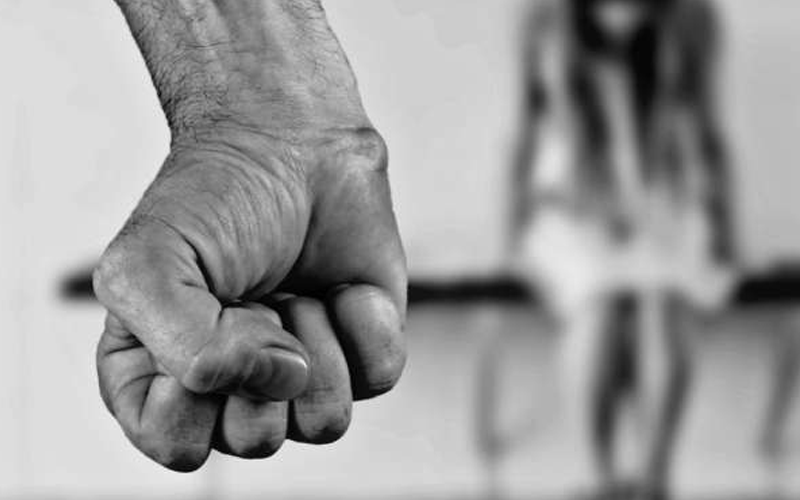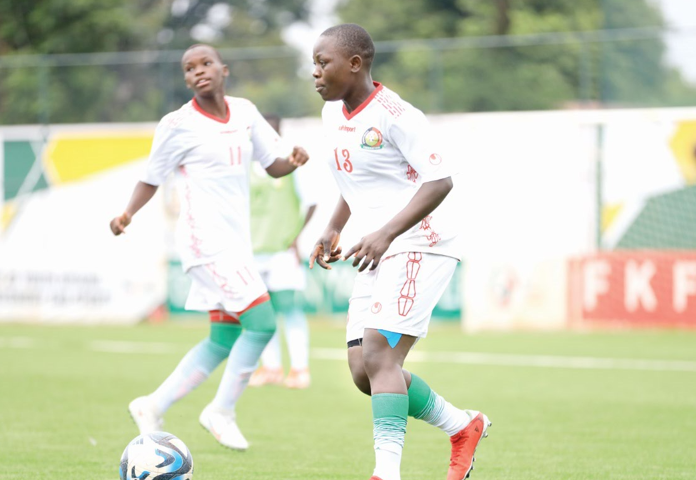Domestic abuse spike as coronavirus traps people indoors

Many of us are feeling stuck at home right now, but it’s a much scarier feeling for those trapped at home with their abuser, isolated from the people and the resources that could help them.
Two weeks ago, Pacifica Ongecha was preparing to go to bed when she heard deafening screams from her neighbour’s house.
It was 10pm, hours after the dusk to dawn curfew had taken effect and the streets of her neighbourhood in Limuru town were quiet.
Pacifica rushed to the house to find two children screaming, and their mother negotiating with their father who had brandished a knife ready to attack her.
It took the intervention of Pacifica to calm down the couple that had gotten into an argument over allegations of infidelity and financial tensions.
“The husband had arrived home that evening drunk after spending the previous night away.
That coupled with the fact that the man was alleged to be not providing for the family sparked off a quarrel,” says Pacifica.
For Pacifica, a community leader in Limuru, cases of domestic violence have become frequent since the start of the partial coronavirus lockdown.
Over the past three weeks, not a day goes without domestic abuse cases.
It is a similar scenario across the country where cases of domestic abuse have increased since the government restrictions begun.
Recently Public Service, Youth and Gender Affairs Cabinet Secretary, Margaret Kobia confirmed this saying there has been a surge of domestic violence cases reported through the Gender Based Violenve (GBV) hotline,1195.
Swept under the carpet
In March alone, 106 cases were reported through the hotline marking an increase from 62 in February and 50 in January.
Statistics show that both men and women are suffering abuse in the hands of their partners at home where they are presumably supposed to be safest.
Since the government introduced measures to curb the spread of coronavirus, some of which include maintaining social distancing, there has also been a rise of sexual abuse incidents.
Data by the National Council on Administration of Justice shows that there had been a spike of sexual offences in the last two weeks of March with the offences constituting 35.8 per cent of all criminal matters reported within that period.
Fridah Githuku, CEO, Groots Kenya, a civil society organisation that works with women at the grassroots says the number of domestic abuse victims could be higher.
The organisation that is present in 14 counties and with over 200,000 members, reports daily cases of violence from mostly women.
“There are more cases that go unreported. The situation is made difficult by the fact that most government officers are busy with Covid-19.
Besides, victims may not be able to get help because of restrictions on movement and lack of money,” says Fridah.
Pacifica notes there are similar patterns on the factors triggering the violence. With schools closed and some companies cutting down on their operations, families are spending a lot of time together.
That means that couples now have more time to confront domestic issues they may have initially swept under the carpet.
“It has become apparent that women have been supporting families financially, while the men have been escaping responsibility.
But now, men who have all along avoided such discussions have to confront their realities,” says Pacifica.
That coupled with financial strain brought by job losses is causing a lot of tension in homes.
Nowhere to vent
Families who were initially used to busy schedules are finding it difficult to adjust to spending too much time together.
“Chances are, some couples that were used to being away from each other all day became strangers overtime, and are now locked up together,” explains Susan Kahema, a counselling psychologist.
Financial stress, uncertainty about the future and other stressors related to everyday life have been linked with various coping mechanisms including domestic violence and substance abuse.
“For people who are not able to handle the stress that comes with these challenges, becoming violent may look like the easy escape,” explains Susan.
Limited social interactions have left people with few options of where to vent their anger and stress.
One cannot go to a bar, visit a friend or watch a match to deal with stress. Perpetrators resort to violence to cope with the feeling of loss of control brought about by the quarantine.
Women withstand the worst of domestic abuse. According to the KDHS 2014, 45 per cent of women and girls aged between 14 and 49 have experienced physical abuse.
Fridah notes that the quarantine has brought to the fore the male impunity in homes. “Under normal circumstances men in most families do not spend a lot of time at home.
But now that they are spending too much time in the house some are criticising how the home affairs are run including how children are being taken care of, without really offering viable alternatives,” adds Fridah.
For families that rely on daily wages, the present circumstances have made them highly vulnerable.
In villages especially, the spike in other forms of abuse. Alice Isoyi, a community leader in Ikolomani, Kakamega county says that difficult financial circumstances are pushing children to engage in child labour.
“It’s the weeding season and children who are supposed to be home studying are working in people’s farms to supplement the family’s income,” she says.
Alice has also encountered few cases of widows being disinherited during this Covid-19 period.
Abuse of illicit brews is still rampant in this season in villages where enforcement of the law may not be strict.
There is the worry that restrictions imposed to prevent the spread of COVID-19 could make it difficult for survivors to report and to seek help.
Experts worry that this scenario could have far-reaching effects even way after the pandemic is over.
“From this spike of violence we are likely to see an increase in HIV infections and a rise in unwanted pregnancies,” says Fridah.















